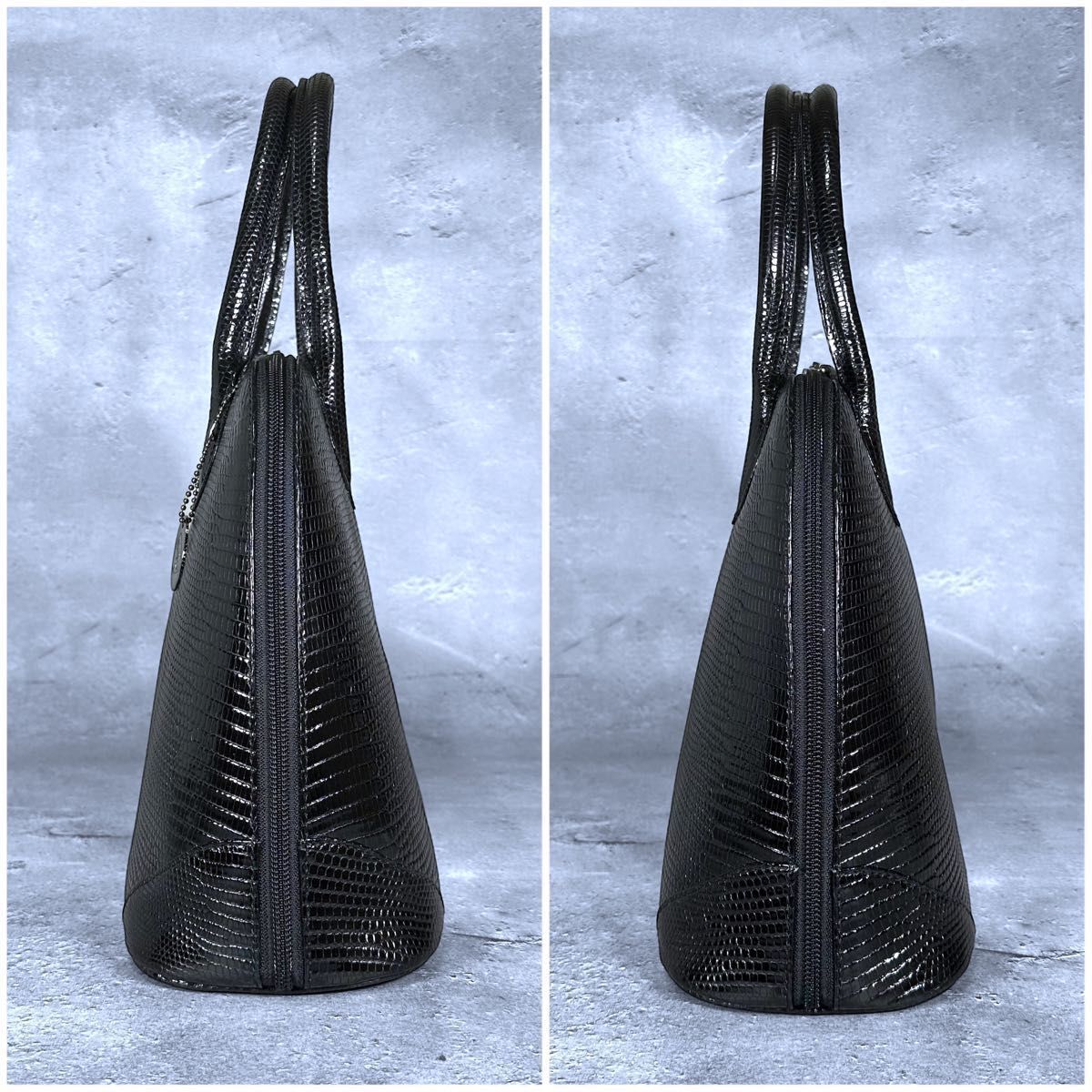【希少/超美品】YAMAGUCHI JRAタグ リザード ハンドバッグ
(税込) 送料込み
商品の説明
★ YAMAGUCHI ★
リザード
エキゾチック レザー
トカゲ革 本革 高級
ハンドバッグ トートバッグ 鞄
JRA 認定 希少 レア
・商品詳細
YAMAGUCHI/ヤマグチ
【色】 ブラック/黒
【付属品】 JRAタグチャーム
【サイズ】 縦/約24.5cm
横/約31.5cm(底)
マチ/約12.5cm
持ち手(ハンドル長さ)/約35cm
※多少の誤差があるかもしれません、ご了承ください。
【状態】 A
※ランクについて
S 新品
A 未使用に近い
B 傷・汚れ・ほつれ多少あり
C 傷・汚れ・ほつれあり
大体の目安としてご参考下さい。
*お願い*
⌒⌒⌒⌒⌒
プロフィールは必ずご確認下さい。
商品ページをいきなり削除する場合もございますのでご了承ください
ご質問、気になる点ございましたらご購入前にコメントにてお願いします。
また、先にご購入された方の優先となりますのでご了承ください。
・品質保証
正規品本物保証
直営店、正規店、大手リサイクルショップ等での購入。
・梱包や発送について。
丁寧梱包、なるべく早い発送を心掛けております!
日時指定ございましたらご注文の際にお願い致します。
トラブル防止のため、梱包の際に動画撮影をしてお取引完了するまで間保存しております。
B8480905AIBEAA商品の情報
| カテゴリー | レディース > バッグ > ハンドバッグ |
|---|---|
| 商品の状態 | 未使用に近い |

正規品の人気商品通販 【希少/超美品】YAMAGUCHI JRAタグ リザード

【希少/超美品】YAMAGUCHI JRAタグ リザード ハンドバッグ

【希少/超美品】YAMAGUCHI JRAタグ リザード ハンドバッグ

正規品の人気商品通販 【希少/超美品】YAMAGUCHI JRAタグ リザード

正規品の人気商品通販 【希少/超美品】YAMAGUCHI JRAタグ リザード

正規品の人気商品通販 【希少/超美品】YAMAGUCHI JRAタグ リザード

希少/超美品】YAMAGUCHI JRAタグ リザード ハンドバッグ-

希少/超美品】YAMAGUCHI JRAタグ リザード ハンドバッグハンドバッグ

希少/超美品】YAMAGUCHI JRAタグ リザード ハンドバッグ - ハンドバッグ

希少/超美品】YAMAGUCHI JRAタグ リザード ハンドバッグ-

エキゾチックレザー【極美品】リザードハンドバッグ、ネイビー、JRA

日本売筋品 【JRA認定】ハンドバッグ リザード | temporada.studio

限定製作 希少カラー JRA 本革 リザード バッグ ハンドバッグ 本革

正規品販売 JRAタグ JRA認定 リザードハンドバッグ ハンドバッグ

リザード バッグ JRAの値段と価格推移は?|17件の売買データから

希少/超美品】YAMAGUCHI JRAタグ リザード ハンドバッグ-

NEW限定品 バッグ バッグ 楽天市場】【5%OFFクーポン】リザード トート

公式オンラインストアな 【JRA認定】ハンドバッグ リザード | www

jra タグ バッグの値段と価格推移は?|58件の売買データからjra タグ

リザードレザー ハンドバッグの値段と価格推移は?|6件の売買データ

上品なスタイル 超希少 JRA センザンコウ ハンドバッグ ショルダー

2024年最新】jra タグ バッグの人気アイテム - メルカリ

美品♡希少♡ジバンシー♡リザード♡バッグ - www.sorbillomenu.com

JRAタグ付き 超希少/シールスキン/アザラシ革/ハンドバッグ/2WAY Yahoo

新素材新作 JRA公認 バッグ」(その他) 日本製高級とかげ革 リザード

美品♡希少♡ジバンシー♡リザード♡バッグ - www.sorbillomenu.com

2024年最新】jra ハンドバッグの人気アイテム - メルカリ

YAMAGUCHI ヤマグチ マットクロコダイル センター取り ハンドバッグ 黒

開梱 設置?無料 】 特別価格◇美品◇TAKECHI タケチ クロコダイル 2way

ふるさと割 JRA認定 JRA認定 リザード リザード ショルダーバッグ

大注目 希少リザード素材✨ ペレボルサ ショルダーバッグ JRA認定 希少

JRA認定 トカゲ革 リザードレザー×本革 レザー ハンドバッグ-

ブランドおしゃれ 肩掛け クロコダイル×オーストリッチ JRA

2024年最新】jra ハンドバッグの人気アイテム - メルカリ

誠実 希少 turtle タートルレザー 亀革 カメ革 がま口 ハンドバッグ

2024年最新】jra ハンドバッグの人気アイテム - メルカリ

JRA認定 トカゲ革 リザードレザー×本革 レザー ハンドバッグ-

値下げ シャイニングクロコ ハンドバック マット バック ワニ革 楽天

2024年最新】jra ハンドバッグの人気アイテム - メルカリ

数量限定価格!! JRA認定 JRA認定品 リザード バッグ バッグ www










商品の情報
メルカリ安心への取り組み
お金は事務局に支払われ、評価後に振り込まれます
出品者
スピード発送
この出品者は平均24時間以内に発送しています














